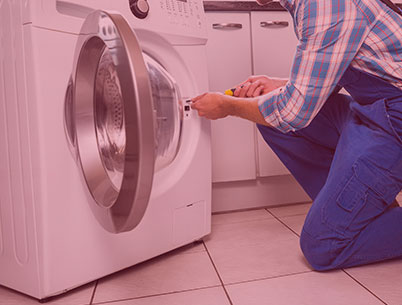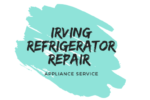The ability to fix your appliances, instead of having to call the professionals, is a time-saving and cost-effective option. It is also one that will help you extend the life of some of the most expensive appliances in your home.
If you want to learn how to solve some of the most common appliance issues on your own, you’re in the right place. Remember, when taking on any home repair job, safety is of the upmost importance. Always wear the proper protective gear and unplug the appliance before working on it.

With that in mind, here are some tips to help you with DIY home appliance repair.
1. Check for the Obvious Problems
It’s a good idea to check for the basic and obvious problems before you take a deeper dive into what the issue may be. Some things to look at include the power settings for the unit, whether the cord for the appliance is plugged into the outlet, and that it is turned on. It’s also a good idea to check to see if the outlet that is being used is getting power. There are some appliances that won’t work if they are sitting on an uneven surface or if the filter is clogged and caused it to overheat. Be sure to cover all these basic issues before moving on to more in-depth problems.
2. Understand the 50% Rule
According to the 50% rule – if the appliance is over 50% through the expected lifespan (usually you can find estimates for this in the original manual or online), and the cost of the needed repairs and replacements is over 50% of purchasing a new appliance, then replacing it entirely is probably the best option. This is a good rule to follow if you are comparing the cost of repairing the appliance vs. DIY repairs vs. total replacement.
3. Listen to the Moving Parts in the Appliance
The moving parts in your appliance are going to be the most likely to fail or wear out. When you are repairing your appliances, make sure to look at the moving parts. For most, this will mean looking at the motors and fans to ensure they are functioning properly. One of the telltale signs your appliance needs repairs is if it is making too much noise. Motors, fans, and other components will make loud noises if they are failing.
4. Get to Know the Refrigerant Cycle
Refrigerant is used by many appliances. It’s important that you understand this cycle, how it works, and what may go wrong. When you understand this cycle, you will know when something is not working properly. You will also know what type of maintenance is required if there is a refrigerant leak or a similar issue.
5. Purchase a Quality Multimeter
How can you tell if the issue is with the wiring? All you have to do is test it. For that, you need a multimeter. This will let you measure the voltage along with other signals that let you know what electrical components or wires are or are not working. If you want to be a master of home appliance repair, having a multimeter on-hand is a must.
6. Check the Ignition Processes
If you have any gas-powered appliances, they will rely on an ignition process to start. There are some that have pilot lights while others have electric starters. In either case, a common issue is with the ignition process. It’s a good idea to check this to make sure the pilot light is on, that the starters are aligned properly, and that nothing is blocked with soot.
7. Get to Know the Location of Your Hoses
Your washing machine, dishwasher, and many other appliances use hoses to move water from one location to another. If there is a kink or a leak, it can cause trouble. Make sure to check all these hoses and the valves to find the part that needs to be replaced or re-sealed. Hoses will typically wear out before the other components, so make sure you pay attention to their condition when making repairs on your appliances.
8. Replace Gaskets and Seals
You will find gaskets and seals on all refrigerator doors, along with other places “behind the scenes” of your appliances. It’s a good idea to become accustomed to checking these parts for any cracks or damage. Be sure to replace them when these issues are found.
9. Look Up Error Codes for Your Appliances
Thanks to the availability of the internet, it is now fast and easy look up error codes than ever before. Also, more appliances than ever before have these including washing machines and dishwashers, microwaves, and ovens. If you have a code pop up on your appliance, take the time to look it up to see what it means. This will also help you figure out if it is an issue you can handle on your own.
10. Make Sure You Have the Right Tools
While a multimeter is a must-have tool for working on the appliances in your home, it is not the only tool that is necessary. If all you have in your tool bag is a screwdriver or two, you are not prepared to take on home appliance repair. Make sure you invest some into your tool supply to ensure you have everything you need to make repairs in a timely and efficient manner. Believe it or not, there are several affordable tool kids out there.
Know When to Call the Pros
Any master of home appliance repair has an important skill that should not be overlooked. This is the ability to know when it is necessary to call the professionals for help with the needed repairs. The fact is, there will eventually come a time when even the best DIY repair man won’t be able to handle the job. When this need comes, the best thing you can do is to reach out to the professionals for service. They will ensure the underlying issue with the appliance is determined and that the right repair is made.
Continue Reading about “Major appliance and electric warehouse”


